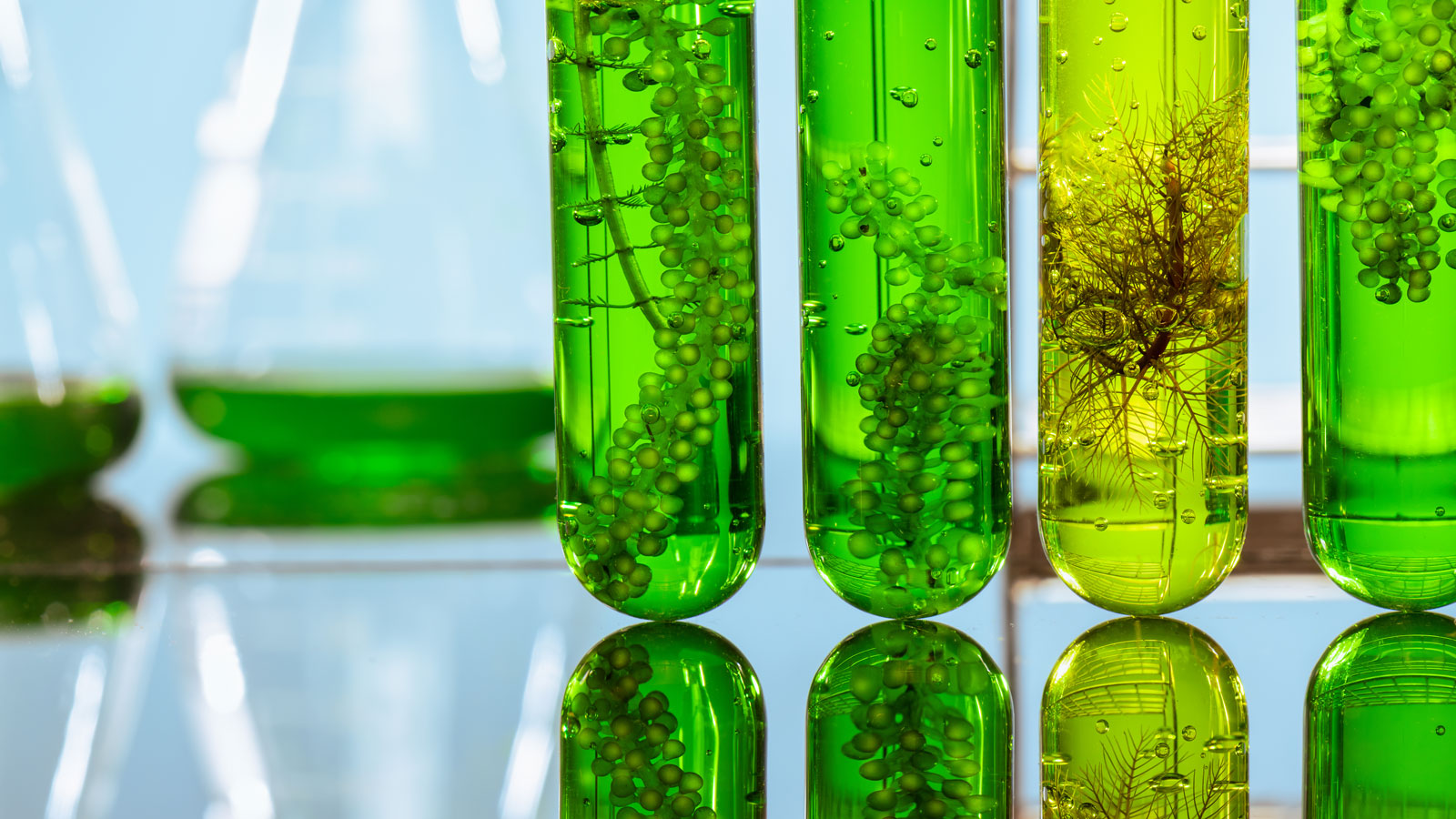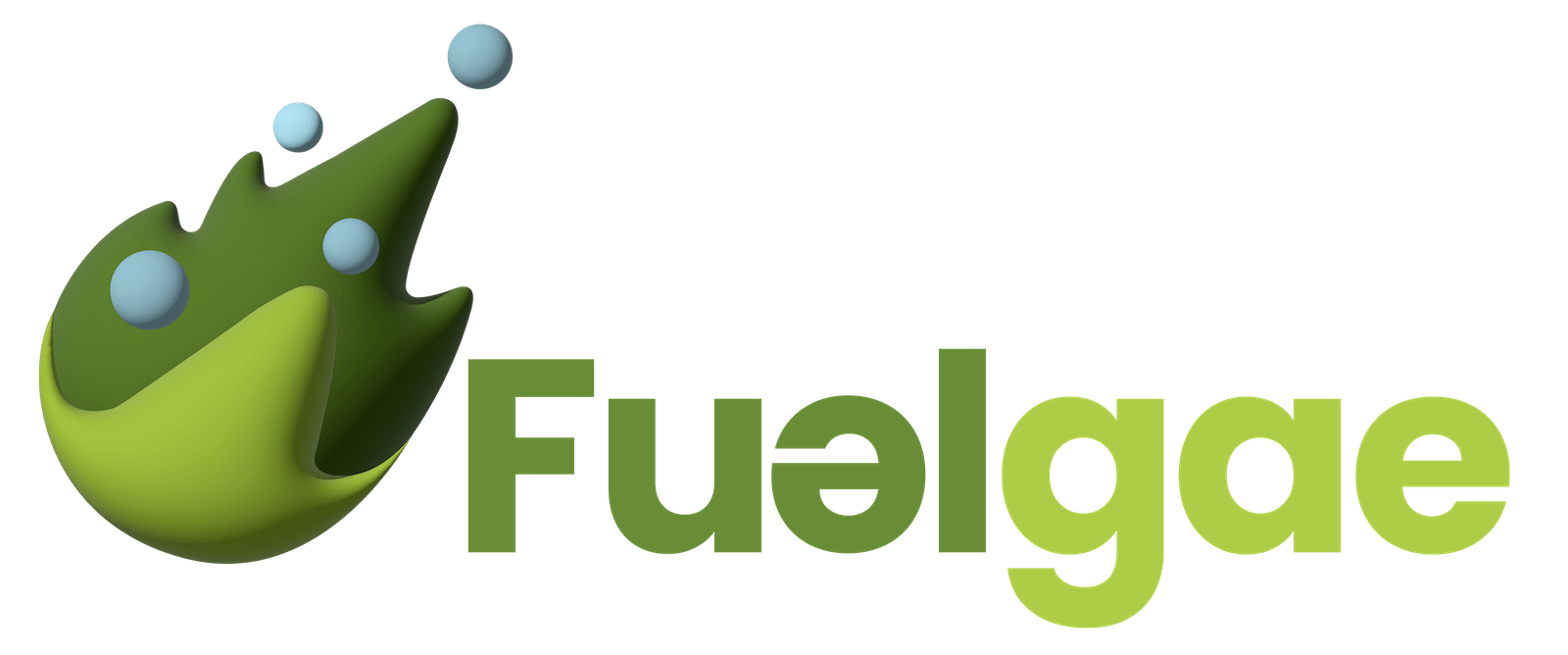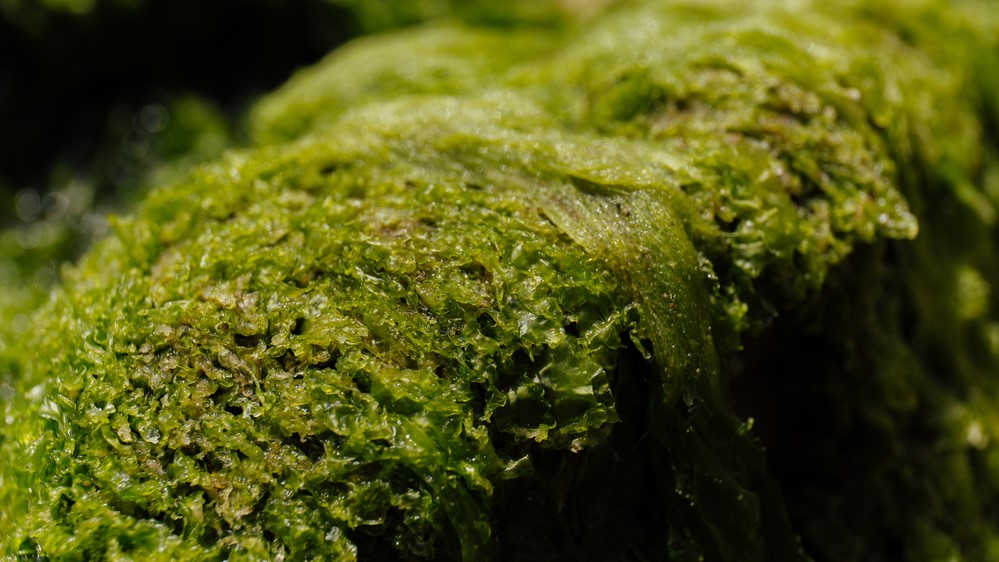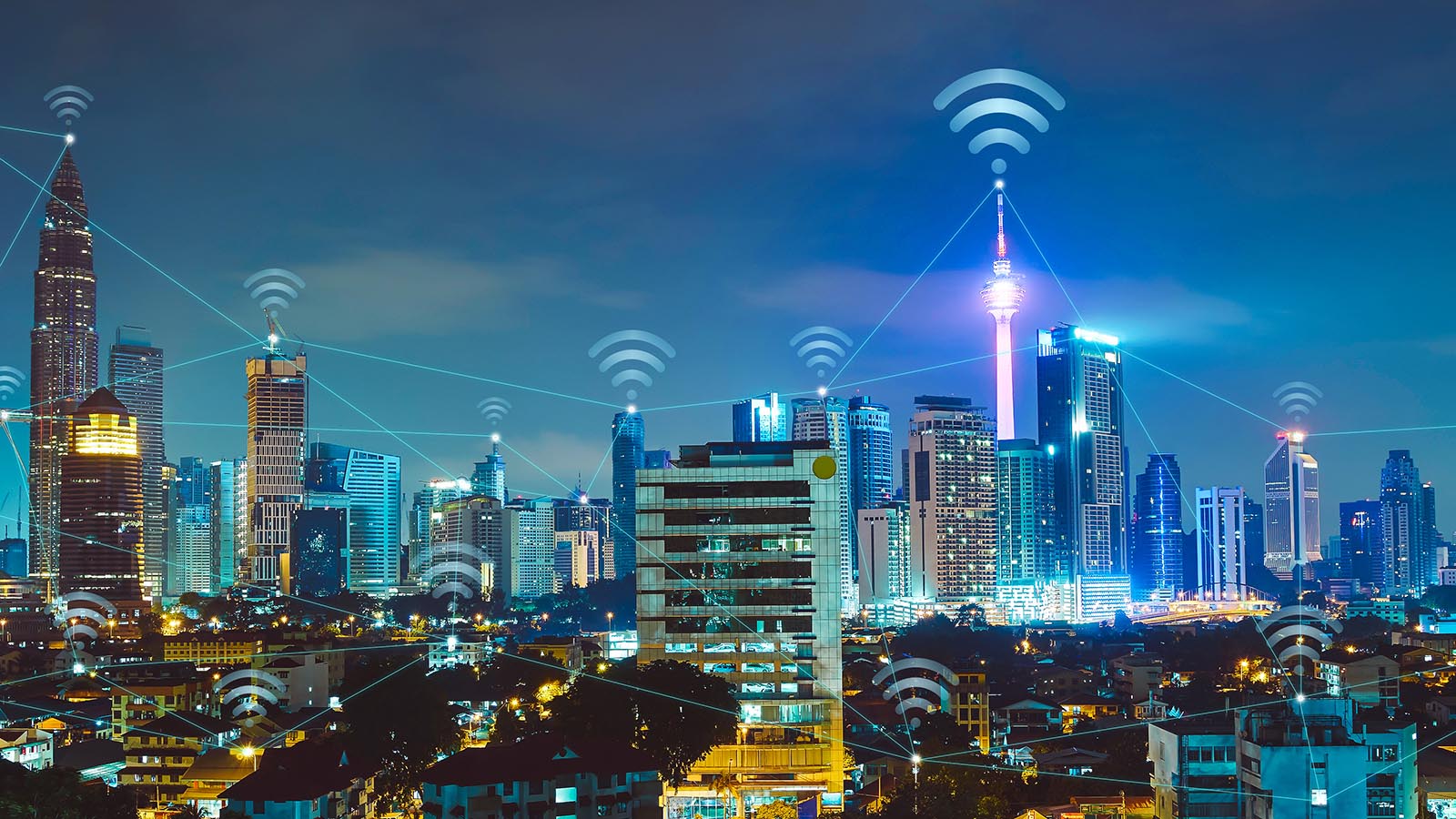FUELGAE: Sustainable On-site and Innovative Technologies for Advanced Transport BioFuels from Microalgae

The FuelGae project aims to create a portfolio of microalgae-based biofuels, facilitating the generation of high quality biofuels through: carefully selected and adapted species, intensified cultivation processes, novel biomass treatments, optimal conversion technologies and smart integration into existing CO2 emission processes, circular economy, control technologies such as real-time monitoring and DT (Digital Twin) and the validation and standardisation of the biofuels obtained.
Likewise, FuelGae seeks to efficiently use all microalgal biomass and the simultaneous production of biofuels, increasing the profitability and sustainability of the process.
Context
Europe’s commitment to decarbonising the economy has been declared through the European Green Pact, which includes targets to be achieved by 2030. To achieve climate neutrality by 2050, it is necessary to develop green technologies, establish sustainable industry and reduce pollution. Global CO2 emissions in 2021 were approximately 37.12 Gt.
Thanks to measures taken in the EU, GHGs have decreased by 31% between 1990 and 2020. However, projections of this trend indicate that emission reductions are insufficient to reach the targets set for 2030, i.e. a 55% reduction compared to 1990 levels, and carbon neutrality by 2050. For example, emissions in the transport sector have been steadily increasing (by 19% compared to 1990), contrary to the trend of total emissions, exceeding the emission limit foreseen for 2030. Specifically, CO2 emissions from transport (including international aviation, but excluding international shipping) were still 28% above 1990 levels in 2017.
Emissions therefore need to fall by two-thirds by 2050 in order to meet the 60% GHG emissions reduction target of the 2011 Transport White Paper.
Summary and objectives
The FuelGae project aims to develop a novel model for the production of advanced liquid fuels (ALF) from different CO2 emission streams from two industrial sectors (biorefinery and energy-intensive industries) through a microalgae pilot plant integrated in their infrastructures. The performance of the selected microalgae strains will be improved by adapting them to each industrial case study.
ALF production will be addressed by developing different technologies:
- Selective production of microalgae to obtain polysaccharides or lipids.
- Alternative treatments of microalgal biomass.
- Innovative catalytic upgrading systems from biocrude.
- In-line microalgae sensor.
In addition to the above innovative technologies, the FuelGae concept uses modelling techniques integrated with Process Analytical Techniques to develop a global Digital Twin (DT).
Furthermore, the C-economy of the FuelGae approach will be significantly improved through hydrothermal liquefaction and biogas processes. The biochar produced will be tested in agricultural uses creating synergies with power generation and biocrude. All technologies will be brought to TRL5 in the two case studies; the microalgae pilot plant will be transported and validated at the two industrial sites in Romania (steel plant) and Spain (2G bioethanol). FuelGae technologies will be further assessed through life cycle assessment (LCA/LCC) to confirm their lower environmental impact, resource use or GHG emissions, and a first approximation of economic sustainability. The DT will be combined with the LCA-LCC to provide a comprehensive and dynamic assessment of the FuelGae concept.
FuelGae will contribute to the advancement of Europe’s science base and global technology leadership in the area of renewable fuels, increase its technological competitiveness and its role in transforming the energy system to a fossil fuel-free basis by 2050, in particular in developing countries in sectors such as aviation and maritime transport, while supporting the EU’s energy independence goals.
Consortium
In order to tackle the development of these sustainable and innovative technologies for fuel production, FuelGae has a multidisciplinary and balanced team. The consortium brings together 12 partners from 6 countries (5 EU and Romania). The partners and associates share a common interest in the topic, bring to the project multiple expertise and allow it to be representative of all European macro-regions.
Specifically, the consortium is made up of:
1. AGENCIA ESTATAL CONSEJO SUPERIOR DE INVESTIGACIONES CIENTIFICAS (CSIC) (Spain) (Coordinator).
2. DYNAMIC & SECURITY COMPUTATIONS SL (ANALISIS-DSC) (Spain).
3. INSTITUTO TECNOLOGICO DEL EMBALAJE, TRANSPORTE Y LOGISTICA (ITENE) (Spain).
4. ETHNIKO KENTRO EREVNAS KAI TECHNOLOGIKIS ANAPTYXIS (CERTH) (Greece).
5. TEKNOLOGIAN TUTKIMUSKESKUS VTT OY (VTT) (Finland).
6. OULUN YLIOPISTO (UOULU) (Finland).
7. RTDS – VEREIN ZUR FORDERUNG DER KOMMUNIKATION UND VERMITTLUNG VON FORSCHUNG, TECHNOLOGIE UND INNOVATION (RTDS VEREIN, ENGL. RTDS ASSOCIATION) (RTDS) (Austria).
8. INLECOM COMMERCIAL PATHWAYS COMPANYLIMITED BY GUARANTEE (ICP) (Ireland).
9. ARCELORMITTAL TUBULAR PRODUCTS ROMAN SA (AMTP-RO) (Romania).
9.1 ARCELORMITTAL TUBULAR PRODUCTS LEGUTIO SA (AMTP-ES) (Spain).
10. PERSEO BIOTECHNOLOGY S.L. (PERSEO) (Spain).
11. ELLINIKA PETRELAIA MONOPROSOPIANONYMI ETAIREIA DIYLISISEFODIASMOU KAI POLISEONPETRELAIOEIDON KAI PETROCHIMIKON (HELLENiQ) (Greece).
12. ETHNICON METSOVION POLYTECHNION (NTUA) (Greece).
ITENE’s role in FuelGae
In the FuelGae project, ITENE will lead the Life Cycle Assessment (LCA) tasks within the work packages 13 and 14 (WP13 and WP14). Specifically, these packages have the following objectives:
- The development of the models that will serve to dynamically assess the environmental impact and hotspots associated with the production of biofuels from microalgae, by means of Environmental LCA (LCA-E).
- The evaluation of the economic costs associated with the production of biofuel from microalgae by means of Life Cycle Cost Analysis (LCA).
- The performance of dynamic simulations for the value chains of the optimised processes and demonstration of the sustainability of the final processes.
- The analysis of the environmental impact at pilot scale, based on the LCA results.
In addition, ITENE will collaborate with PERSEO in the work packages 4 and 7 (WP4 and WP7) for the following actions:
- Identify the specifications for the FuelGae technologies and the final products and the definition of the KPI’s.
- Conduct a preliminary study of the proposed approach and strategies for the integration of the whole concept.
- Optimise the production of biogas and digestate by enzymatic hydrolysis and digestion at laboratory scale.



